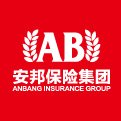IPOs: Postal Bank Offering Fizzles, Anbang Eyes HK
Bottom line: Postal Savings Bank’s IPO is likely to price weakly and make a flat trading debut due to waning enthusiasm, while Anbang could make a similarly large IPO next year that will get an equally tepid reception.

The world’s biggest IPO in 2 years is quickly running out of steam, with word that a Hong Kong listing by Postal Savings Bank of China, the nation’s last national bank to list, is set to price near the bottom of its range. Meantime, what could easily become one of next year’s biggest offering has just popped into the headlines, as insurance giant Anbang is saying in one of its first-ever foreign media interviews that it wants to make its own listing, also in Hong Kong.
Neither of these IPOs looks too attractive to me, as both come from big state-run financial institutions that don’t seem like particularly savvy investors. Postal Bank initially looked like an interesting alternative to China’s commercial lenders due to its conservative investing policies. But enthusiasm for the offering has cooled as people realize the bank’s conservative position won’t make it a very exciting growth company. Meantime, Anbang has become a bit drunk with M&A fever over the last 2 years, and is probably hugely overpaying for global assets that it doesn’t really understand.
Let’s start our latest IPO roundup with the latest headlines that say Postal Bank has narrowed the price range for its IPO to HK$4.76 to HK$4.86 per share, which is at the lower end of its previous range of HK$4.68 to HK$5.18. (English article) The new range means the offering could raise a maximum of $7.6 billion, or about 6 percent below the maximum $8.1 billion under its original price range.
The reduced offering will still be the world’s largest since e-commerce giant Alibaba’s (NYSE: BABA) $25 billion IPO 2 years ago. This deal has evolved quite a bit since its original announcement, beginning with relatively strong sentiment before gradually losing its appeal and selling most of its shares to big state-run investors. (previous post)
The biggest damper on this offering is China’s broader economy, which is slowing rapidly after years of breakneck growth and may even be headed for a hard landing including a major banking crisis. Postal Bank is likely to avoid the worst fallout from such a crisis, but would still suffer somewhat. Its reliance on rapidly aging pensioners as its main depositors won’t help matters, depriving it of new capital as that generation dies out and is replaced by a younger generation with far more banking choices.
Looking for Transparency
Next let’s look at Anbang, which was a relatively obscure insurer before bursting onto the global scene with its purchase of the storied Waldorf Astoria hotel in New York 2 years ago for nearly $2 billion. The company made a number of other major global purchases after that, and this year was in major headlines when it pulled out of a bidding war that ultimately saw US hotelier Starwood (NYSE: HOT) sold to rival Marriott (NYSE: MAR) for $12.4 billion.
In what’s being billed as the first interview ever by a senior Anbang executive with foreign media, Vice Chairman Yao Dafeng is saying his company is mulling a Hong Kong IPO for its life insurance unit. (English article) He explains such an offering would be part of a broader bid to get in line with international market rules and be more transparent. There’s not much more of substance in the interview, with Yao declining to comment on Anbang’s current ownership structure and the source of its huge cash pile for M&A.
One of my sources previously told me that Anbang’s cash comes partly from its large real estate holdings in Beijing, which have increased rapidly in value over the last decade. It has also generated big premiums by offering insurance policies that pay well above market rates, a common practice among Chinese insurers that looks filled with risk.
Accordingly, an IPO would help Anbang to raise more capital that could help to lower its high risk profile if its assets suddenly fall in value. I would expect such an offering to be quite large, perhaps worth up to $5 billion, though demand will be lukewarm due to the company’s high risk exposure.
Related posts:
- IPOs: NetEase Eyes Portal Spin-Off, Friends Deliver for Postal Bank
- TRAVEL: Anbang Plays Hide-and-Seek with Beijing in Canadian Hotel Bid
- IPOs: Investors Cool on Postal Bank, Lufax Delays Listing
- Today’s top stories
